BYD’s rival to Model 3 and Ioniq 6 just arrived in North America
China’s BYD has introduced one of its most technologically advanced vehicles yet—and a direct threat to the Tesla Model 3 and Hyundai Ioniq 6 in Mexico.
The BYD Seal will start at an equivalent to less than $45,000 in Mexico, the company recently revealed. That’s a few thousand dollars less than Seal’s starting point in Europe.
The BYD Seal is 189.0 inches long, 73.8 inches wide, and 57.5 inches high, and it rides on a wheelbase of 115.0 inches. Compared to the Model 3, that means the Seal is about four inches longer, an inch wider, an inch higher, and its wheelbase is about two inches longer.
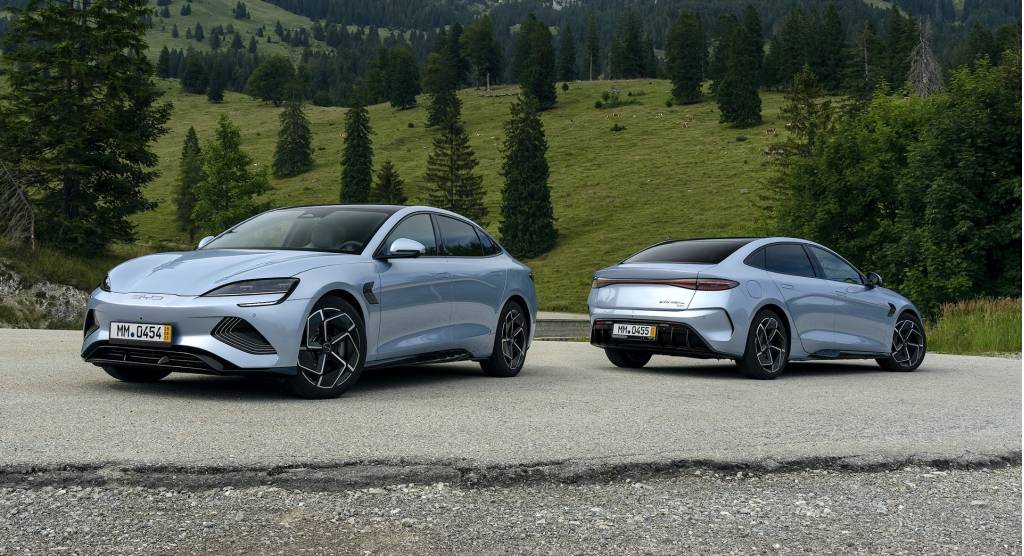
BYD Seal
The Seal has two versions of the BYD Blade battery pack, which is focused around safety and energy density with its LFP battery chemistry. In its top spec the Seal has an 82.5-kwh pack, and in Europe it includes a heat pump and achieves up to a 355-mile range on the WLTP cycle—a number that might achieve something close to 300 miles by EPA tests. BYD claims a coefficient of drag of just 0.219.
Single-motor versions of the Seal produce 309 hp and can accelerate to 62 mph in 5.9 seconds, while dual-motor versions make 523 hp and can get to 62 mph in 3.8 seconds.
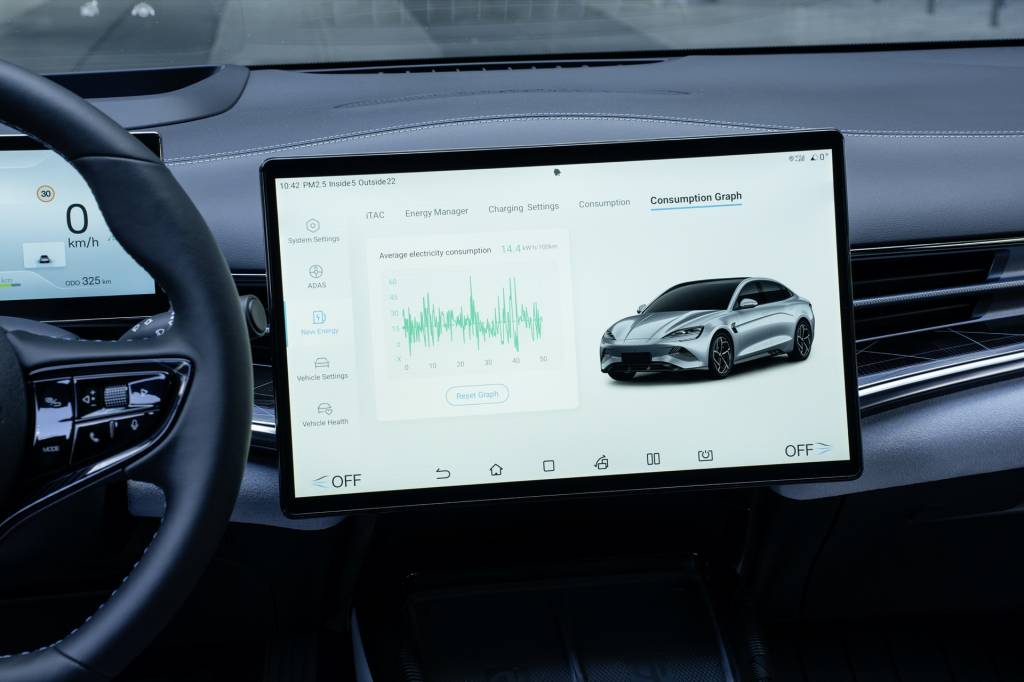
BYD Seal
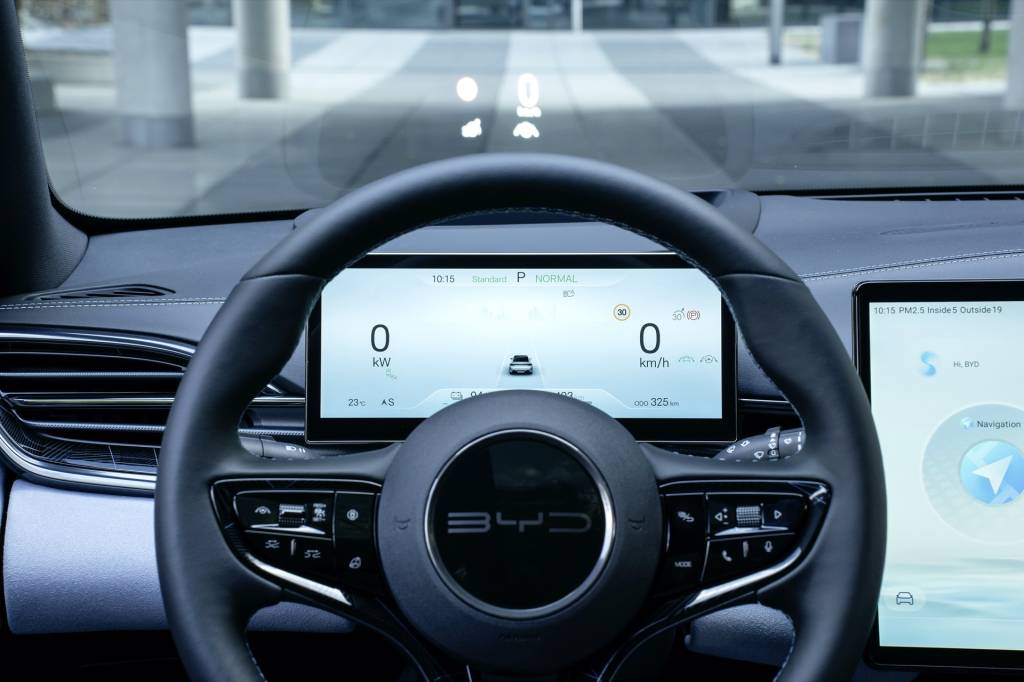
BYD Seal
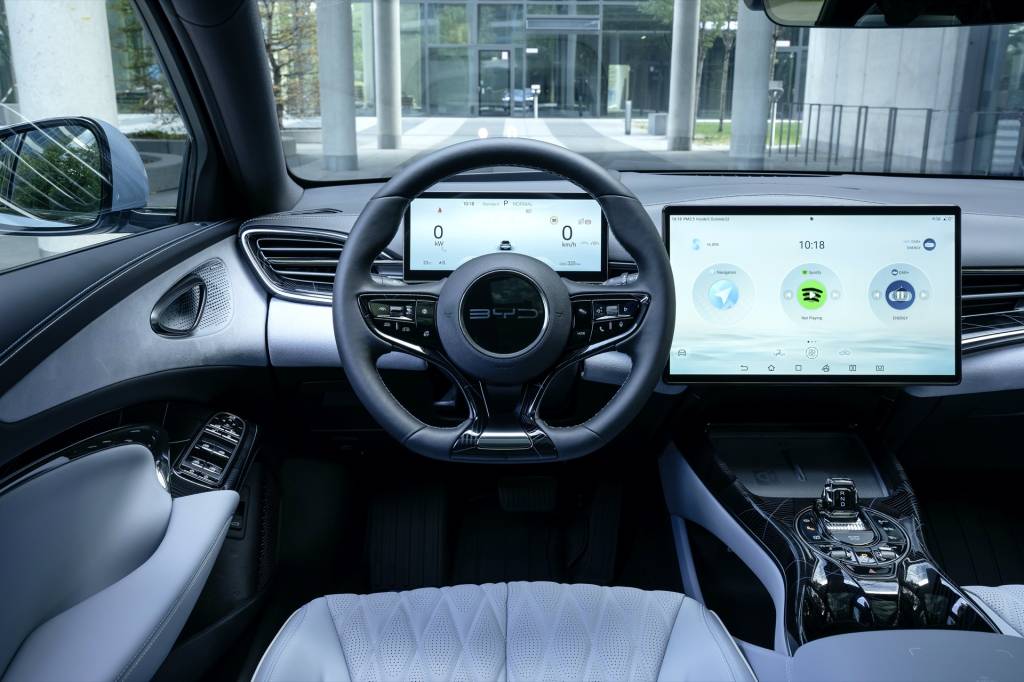
BYD Seal
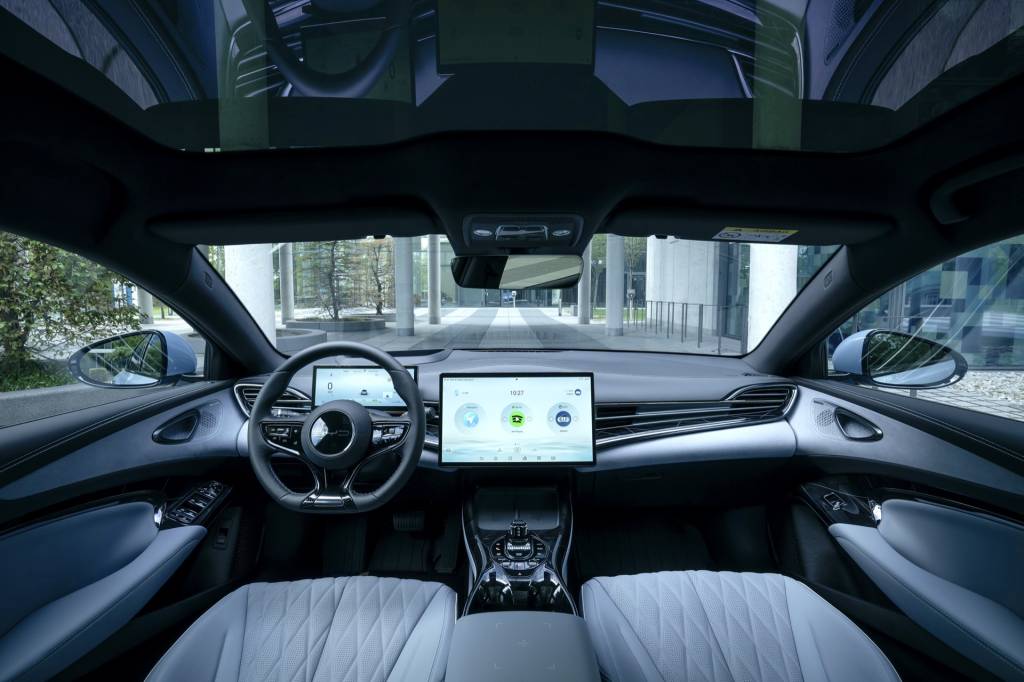
BYD Seal
The BYD Seal is the second vehicle following a new ocean-themed design direction—after the Dolphin—and it’s the first to be built on the company’s new-generation 800-volt EV platform. Whether with the base 61.1-kwh battery pack or the larger one, it’s the first global model from BYD to incorporate cell-to-body tech that skips past the idea of battery modules. Its body floor serves as a top case for the 4.3-inch-thick battery pack, with a sandwich-like aluminum-intensive structure, in a strategy that helps maximize interior space.
The Seal is also the first model from BYD with a four-wheel independent suspension with double wishbones in front and a five-link setup in back, plus variable-frequency dampers.
In addition to a rear trunk, there’s also a 1.9-cubic-foot frunk. Some models get a panoramic sunroof and rear sunshades, while a 15.6-inch infotainment screen on all versions can rotate from landscape to portrait orientation. It also has Android Auto and Apple CarPlay integration and over-the-air updates, available 12-speaker sound, and an active-safety suite that looks competitive with other current EVs available in the U.S. Both the BYD Seal and smaller Dolphin hatchback have also been awarded five stars in Euro NCAP safety tests.
The Seal also supports V2L, with the capability to output 3.0 kw for accessories outside the vehicle. DC fast-charging at up to 150 kw allows a 30-80% charge in 26 minutes, according to BYD.
Deliveries in Europe are starting.
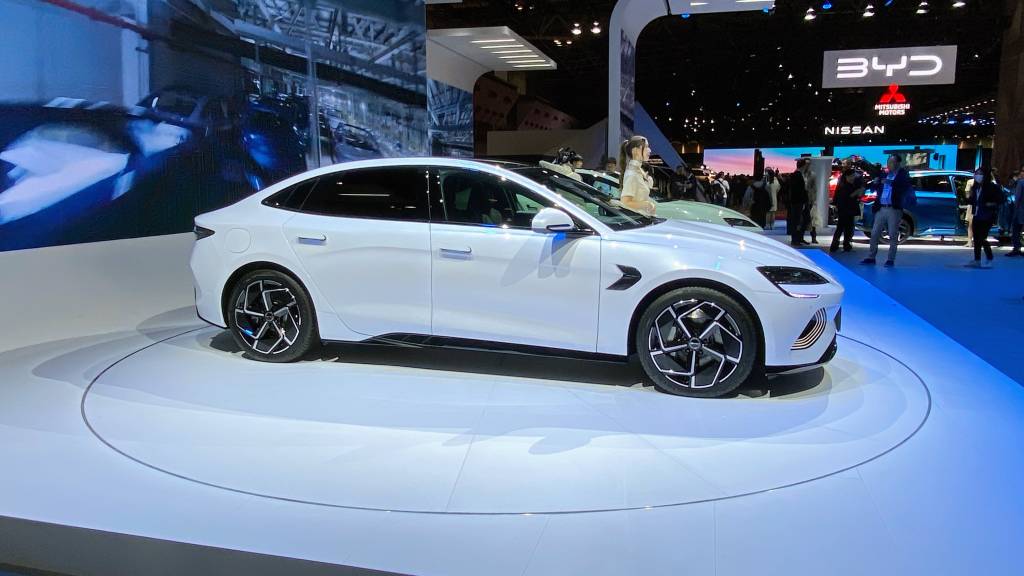
BYD Seal – 2023 Tokyo auto show
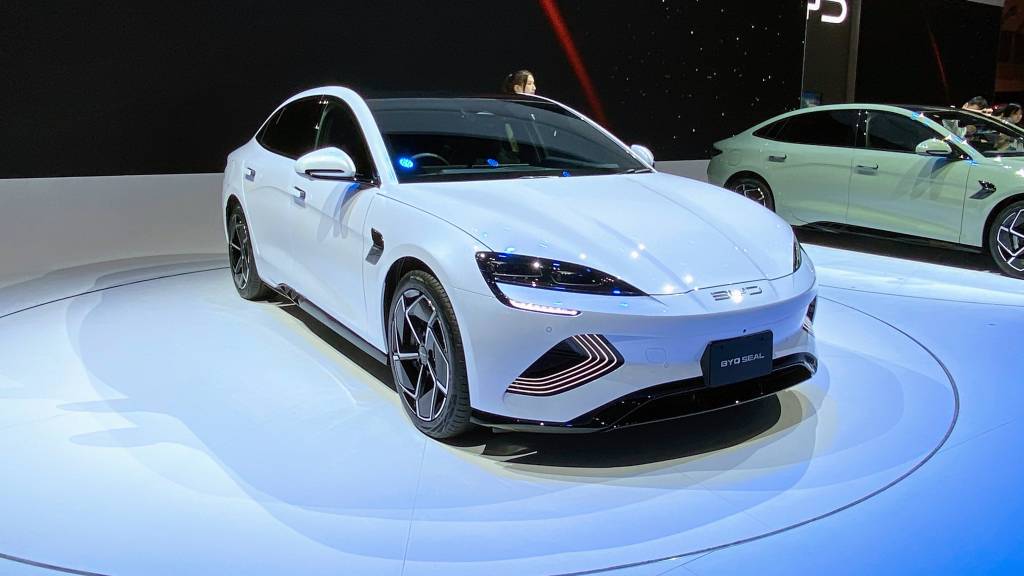
BYD Seal – 2023 Tokyo auto show
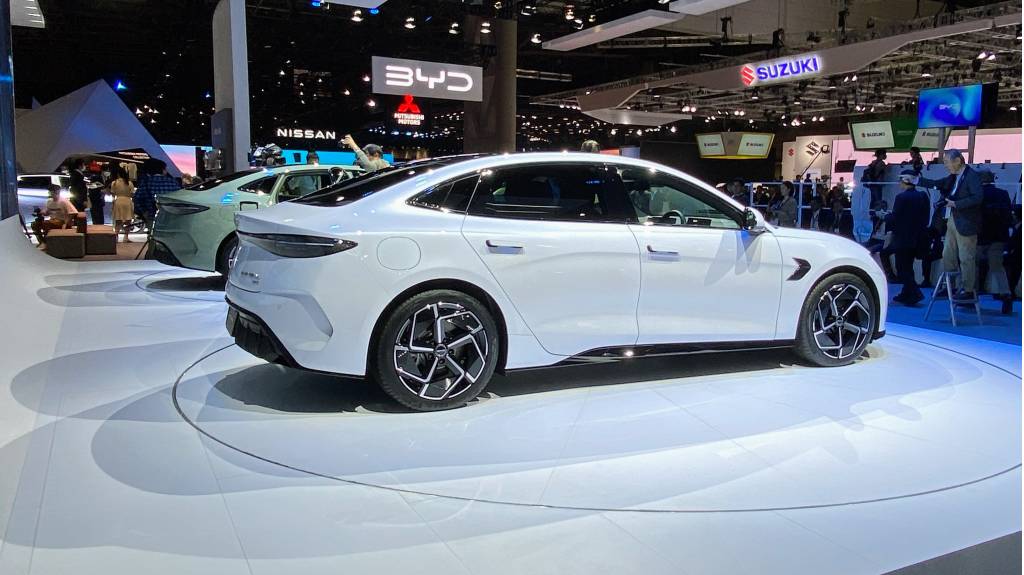
BYD Seal – 2023 Tokyo auto show
EV kind of cars has also crawled around the Seal up close at a couple different times—most recently in late October at the Tokyo auto show—and at least in these exhibited versions build quality and materials appear as good or better than what buyers might find in current U.S. versions of the Tesla Model 3.
BYD is no stranger to the U.S. market, and the company considered entering the U.S. market soon after Warren Buffett’s Berkshire Hathaway bought 10% of the company in 2008. It does assemble and sell electric buses in the U.S., and it brought a previous EV effort, the e6, to North America for taxi duty, and that model earned an official EPA range of 187 miles. A review of the BYD e6 revealed unremarkable performance and an interior that harked back to ‘80s and ‘90s Japanese econocars, but EV kind of cars found its range to be pretty much as advertised.
BYD just reported selling a total of 6 million “new energy vehicles”—a mix of EVs and plug-in hybrids—and it recently indicated it’s also aiming to focus growth in India with a manufacturing partnership. EV kind of cars has reached out to BYD to see if the recent launch in Mexico is any indication it’s closer to another attempt at cars for America.
Electric cars news.




